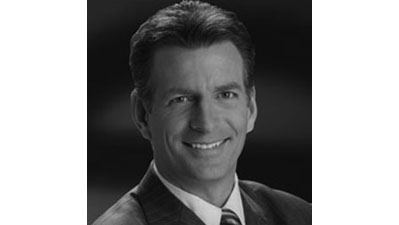Phillip Palmer, morning anchor for ABC7 in Los Angeles, was inspired to donate a kidney after reading a Sports Illustrated article about then-NBA star and transplant recipient Alonzo Mourning. He resolved then to one day save someone’s life as a living kidney donor. Years later, that person turned out to be longtime friend Dale Davis. Phillip reflects on his living donation journey.
Oddly enough, I learned most everything I know about living donation as I went through the process of being evaluated. Of course, I’d known for some time it was possible, and I knew I was willing to do it, but I did not really look into the risks or concerns. I just wanted to help Dale, no matter what. Our transplant coordinator at St. Vincent Medical Center was a huge help. She answered every question, and if she didn’t know it she knew where to get it answered. A good transplant coordinator makes everything better…more peaceful, more calm.
Before the donation, I had a general unease about what comes after. Can I be active? How much work will I miss? What about the future? As it turned out, nothing changed for me. I played adult league baseball with no concerns about getting hit by a ball. I’ve run triathlons, taking mild precautions to avoid dehydration. And I make sure to avoid anti-inflammatory medications that could damage my kidney. I personally missed only eight days of work.
But If I were to do it over again, I would have stayed home a bit longer. I could have used more post-op information to guide my recovery. I was told to rest but not given specific guidance as to how to best handle recovery. For instance, a donor runs the risk of a hernia after the surgery, so sudden movements should be avoided. That’s why you are encouraged not to drive; you don’t want to quickly put on the brakes. You also don’t want to be reaching for things. I learned that walking is probably the best way to speed recovery. Just start with casual walks and build your pace a bit. I think most donors will feel back to normal in a month. I would advise giving your body a physical break for two months and focus on walking as your primary exercise.
I was surprised at the reaction of others to my donation. It’s really embarrassing and in a way kind of makes me want to be quiet about it. I was motivated by faith and the selfish desire to help a friend. I’m not really special, I’m just a member of a special group. There are a lot of us.
Looking back on the whole experience, there are two moments I will never forget. First, the moment I got to see Dale after surgery was moving and emotional. That is common among living donors. My greatest, most vivid memory, however, came before surgery. I was already prepped for surgery and was in pre-op with my wife. There was no turning back at this point, but I’ll admit I was a little scared, unsure and uneasy. I grabbed my fiancee’s hand and asked her to pray with me. My prayer was that Jesus give me strength and comfort and help me with my fear. As I finished my prayer, at that moment, just behind another curtain in pre-op, I heard Dale and our friend Rob laughing – the kind of laugh friends have when they don’t have a care in the world. I opened my eyes from prayer and looked at the woman who is now my wife and said, “I’m ready.” That is the moment I will never forget.
I know I had a direct impact on saving a person’s life. That is a wonderful feeling. And I have joined an amazing, and generous group of people. It is an experience I love to share with others. Some of my best friends now are also living donors.
I would advise anyone deciding whether to donate to be informed. Get every question answered because every question can be answered. Seek people who have gone through this before, because they are out there in greater numbers than you can imagine. It is not my goal to convince people to become a living donor. I want to help and encourage people to think about it, to know it’s a possibility, and then make an informed decision they can live with.
Also, make the decision at a time in your life when you have the opportunity to think about it, to analyze and inform yourself and what it is, what your wishes are, and then inform others of that decision. I was so much more comfortable and confident in my decision because it was not made in a time of great drama, but instead in quiet reflection.

